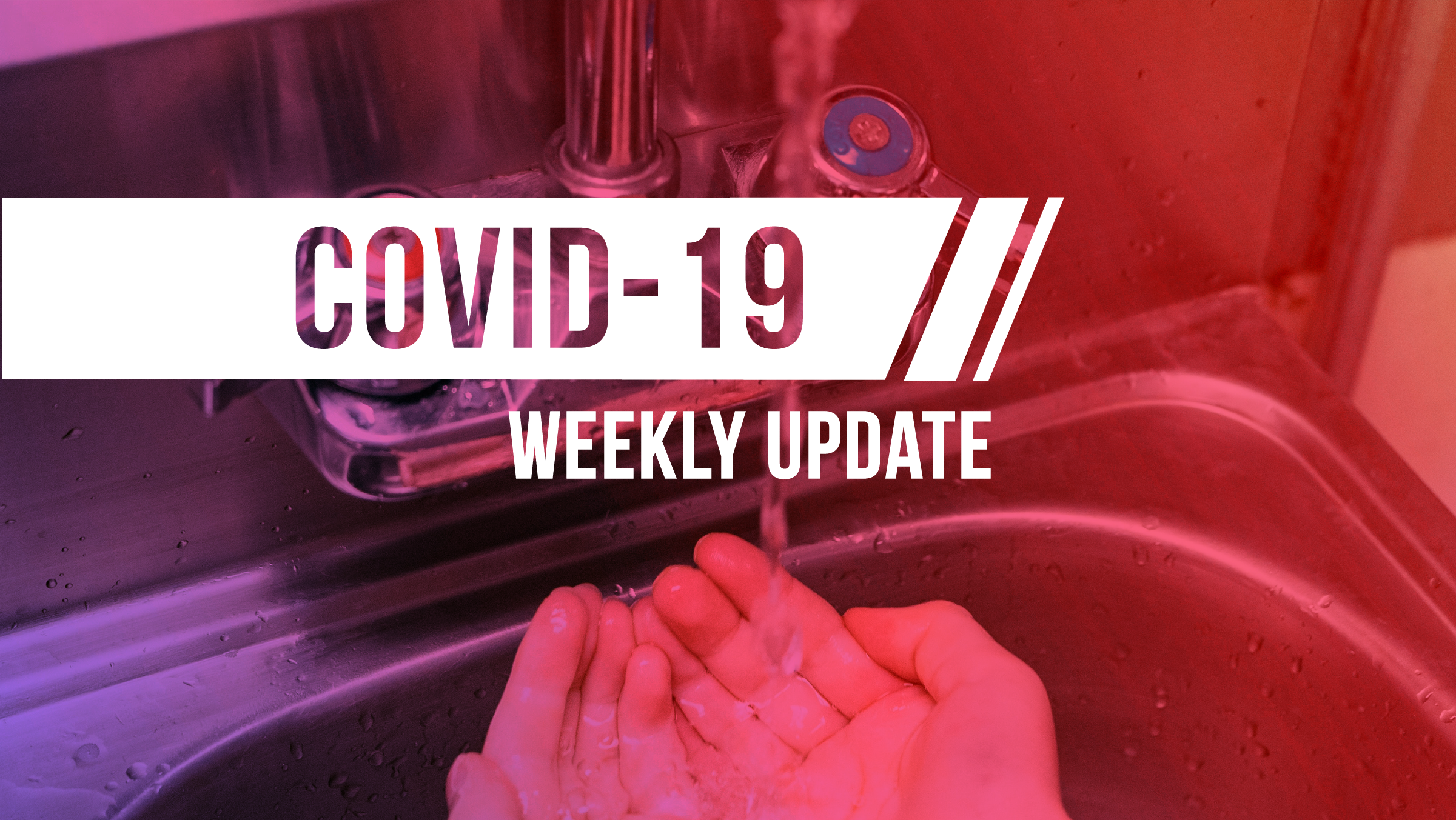COVID-19 Weekly Update graphic. Aubrie Rice // Publicity Center
Updated as of: March 13, 2020 at 12:32 p.m.
Updated on March 24, 2020 at 9:17 a.m. to replace AS Review logo with COVID-19 graphic for featured image.
By Stella Harvey
In response to the novel coronavirus [COVID-19], Western announced on March 13 that the start of spring quarter classes would be delayed by one week, beginning on April 6, rather than March 31. In addition, classes will be held online until April 27, according to a campus advisory email from President Sabah Randhawa.
The announcement comes after Washington Governor Jay Inslee announced on March 12 that all public and private K-12 schools would close for six weeks in King, Snohomish and Pierce counties. The day before, he announced that events with more than 250 people in King, Snohomish, and Pierce counties are prohibited by the state. According to the campus advisory from President Sabah Randhawa, the universities increased response to COVID-19 is consistent with Governor Inslee’s order.
On March 10, the Whatcom County Health Department confirmed the first case of COVID-19. Later that day, the county declared a public health emergency in an effort to coordinate local and state-wide prevention efforts to reduce the spread of COVID-19. As a result, Western moved all classes online through the end of winter quarter at all of the university’s locations.
According to the campus advisory from Vice President of Enrollment and Student Services, Melynda Huskey, faculty will provide final exams online or make other arrangements for final assignments and grades. Western’s campus will remain open and regular operations will continue. As of the March 11 advisory, Western will resume all classes and operations on March 31, pending further information.
According to a press release from the Whatcom County Health Department, the confirmed case of COVID-19 in Whatcom County was a woman in her 60s who received care at PeaceHealth St. Joseph’s Medical Center. Since she was discharged, the individual has been self-isolated at home. As of March 13 at 12:20 p.m. there are 35 negative test results and only one confirmed case, according to their website.
According to the Centers for Disease Control and Prevention, COVID-19 is a new respiratory virus that has been detected in more than 100 locations around the world and was first found in Wuhan, China. Like other respiratory viruses, it is spread through person-to-person contact. To limit the spread of COVID-19, most health advisory organizations recommend staying home if you are sick, avoid touching your face, nose and mouth and washing your hands frequently.
There are currently no treatments for the virus, and while most people will recover on their own, some can develop other complications like pneumonia that may require medical care or hospitalization. The World Health Organization (WHO) reported on March 7 that the current mortality rate is between 3-4%. According to the CDC, older adults and people with serious chronic medical conditions are at higher risk for contracting COVID-19.
According to a Campus Advisory by Associate Medical Director David Hansen on March 10, Western’s Health Center can now test any student patient suspected of coming in contact with COVID-19. Previously, testing for COVID-19 was limited to only severe cases.
In an email sent to student employees on March 11, Casey Hayden, assistant director of student activities, confirmed that student employees can develop a remote work plan with their supervisors in the event that campus is closed.
On March 4, Western released a “Coronavirus Information” website with answers to frequently asked questions, notices of event cancelations and resources for students, faculty and staff.
On March 6, Huskey announced in a campus advisory that Winter Commencement, as well as large-scale events scheduled through the end of March, would be canceled to limit the spread of COVID-19. The administration has also recommended postponing or canceling large student club meetings and events. According to the statement, these cancelations are a part of a larger social distancing effort, by limiting the size and number of public events to slow the spread of illness. According to the advisory, arrangements are being made to integrate winter graduates into spring commencement.
Western began campus advisories regarding COVID-19 on March 2, after Washington State public health officials announced six deaths attributed to the novel coronavirus, and Governor Inslee declared a state of emergency. Since then, 31 deaths have been attributed to COVID-19 across 12 counties in Washington, as of March 12. Alongside California and New York State, Washington State has been the hardest hit by COVID-19 in the United States.

